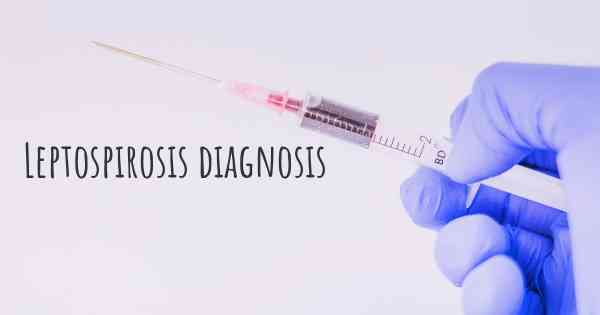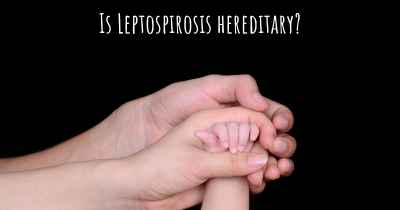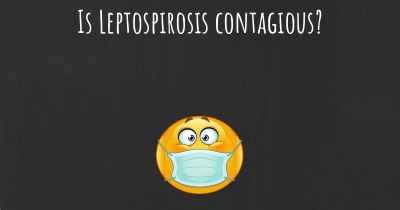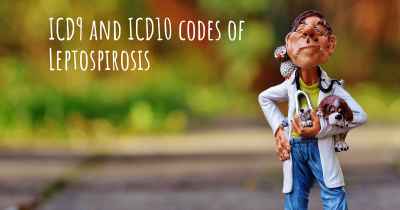How is Leptospirosis diagnosed?
See how Leptospirosis is diagnosed. Which specialists are essential to meet, what tests are needed and other useful information for the diagnosis of Leptospirosis

Leptospirosis is a bacterial infection caused by the Leptospira bacteria. Diagnosing leptospirosis involves a combination of clinical evaluation, laboratory tests, and medical history assessment.
Clinical Evaluation: A healthcare professional will first assess the patient's symptoms and conduct a physical examination. Leptospirosis symptoms can vary widely, ranging from mild to severe. Common symptoms include high fever, headache, muscle aches, chills, vomiting, jaundice, and red eyes. The doctor will look for signs of organ involvement, such as liver or kidney dysfunction, which can occur in severe cases.
Laboratory Tests: To confirm the diagnosis, several laboratory tests are available:
- Blood Tests: Blood samples are taken to detect the presence of Leptospira antibodies. These antibodies are produced by the immune system in response to the infection. The two main types of blood tests used are the Enzyme-Linked Immunosorbent Assay (ELISA) and the Microscopic Agglutination Test (MAT). These tests can determine the specific serovar (strain) of Leptospira bacteria causing the infection.
- Urine Tests: Urine samples may be collected to identify the bacteria in the early stages of the disease. This is done using a laboratory technique called polymerase chain reaction (PCR), which amplifies the genetic material of the bacteria for detection.
- Cerebrospinal Fluid (CSF) Analysis: In severe cases where meningitis or encephalitis is suspected, a lumbar puncture may be performed to collect CSF for analysis. This can help identify the presence of Leptospira bacteria and assess the severity of central nervous system involvement.
Medical History Assessment: The doctor will inquire about the patient's recent activities, travel history, exposure to contaminated water or animals, and any known outbreaks in the area. This information can help establish a link between the symptoms and potential leptospirosis exposure.
It is important to note that early diagnosis and treatment are crucial for managing leptospirosis effectively. If you suspect you may have been exposed to Leptospira bacteria or are experiencing symptoms consistent with the infection, it is recommended to seek medical attention promptly.








